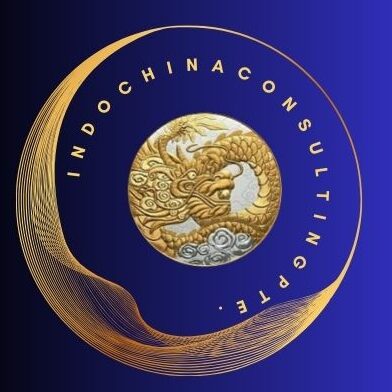In today’s highly competitive business environment, your startup’s success depends not only on your product or service but also on how well your team performs compared to competitors. Team performance is a key factor that drives productivity, innovation, and long-term growth.
Many startup founders focus on their offerings but overlook the importance of assessing and enhancing team performance. This article provides a comprehensive, actionable guide to measuring, benchmarking, and improving team performance to ensure a competitive edge.
I’d be happy to review your team’s KPIs and give you an unbiased opinion. You can book a startup health check here.
Why Measuring Team Performance is Critical
Your startup operates in a fast-moving landscape where competitors continuously evolve. Measuring team performance ensures that:
- You identify strengths and weaknesses early.
- You align your team’s efforts with business goals.
- You foster a culture of continuous improvement.
- You optimize productivity and collaboration.
- You retain top talent by addressing performance gaps proactively.
Key Metrics for Evaluating Team Performance
To effectively measure team performance, you need clear, quantifiable metrics. Here are some essential ones:
1. Productivity Metrics
- Output per employee – Track how much work each team member completes within a specific timeframe.
- Project completion rate – Evaluate how efficiently teams finish tasks on schedule.
- Customer response time – Measure how quickly your team addresses customer inquiries.
2. Engagement and Collaboration Metrics
- Employee satisfaction score – Conduct surveys to gauge team morale.
- Collaboration index – Measure team participation in meetings, brainstorming sessions, and shared projects.
- Peer feedback scores – Implement 360-degree feedback reviews.
3. Quality of Work Metrics
- Error rate – Track mistakes in projects and identify patterns.
- Customer satisfaction ratings – Analyze feedback and reviews from clients.
- Rework time – Monitor the time spent correcting errors.
4. Innovation and Growth Metrics
- Number of new ideas implemented – Count how many innovative solutions come from your team.
- Learning and development participation – Track attendance in training and skill enhancement programs.
- Internal promotions – Measure how many employees advance within the company.
By tracking these KPIs, you can gain a deeper understanding of your team performance and make informed decisions to improve it.
Benchmarking Your Team Against Competitors
Once you’ve measured your team’s performance, it’s crucial to compare it against industry competitors. Here’s how:
1. Research Industry Standards
Identify key benchmarks in your industry, such as:
- Average time to market for new products.
- Customer retention rates.
- Employee turnover rates in similar companies.
Platforms like Glassdoor and LinkedIn Insights can provide useful industry data.
2. Competitive Intelligence
Analyze your competitors by:
- Reading their company blogs and reports.
- Monitoring their hiring trends.
- Checking customer reviews and testimonials.
3. Engage in Networking and Mentorship
Join founder groups and discussion forums to exchange insights. Some great online communities include:
- Indie Hackers – A platform for startup founders to discuss growth strategies.
- Y Combinator Startup School – Offers mentorship and resources for early-stage startups.
- GrowthMentor – Connects entrepreneurs with experienced mentors.
4. Leverage External Audits and Peer Reviews
Consider hiring external consultants or participating in peer reviews through business networks to get an unbiased view of your team’s performance.
Strategies to Improve Team Performance
After assessing and benchmarking your team, the next step is enhancing performance. Here are actionable strategies:
1. Optimize Communication
- Use tools like Slack or Microsoft Teams to streamline communication.
- Implement daily stand-ups to track progress and resolve issues quickly.
- Foster an open feedback culture to encourage constructive discussions.
2. Enhance Team Collaboration
- Utilize project management tools like Trello, Asana, or Monday.com.
- Encourage cross-functional teamwork by assigning joint projects.
- Host regular team-building activities to strengthen relationships.
3. Invest in Employee Growth
- Offer online courses from platforms like Coursera, Udemy, and LinkedIn Learning.
- Implement mentorship programs to guide junior employees.
- Create a culture of continuous learning by encouraging knowledge-sharing sessions.
4. Motivate and Reward Performance
- Recognize top performers through awards and incentives.
- Provide bonus structures for meeting key performance targets.
- Encourage a sense of ownership by offering equity options to employees.
5. Leverage Technology
- Automate repetitive tasks with tools like Zapier and Notion.
- Use AI-driven analytics to get deeper insights into employee performance.
- Implement CRM and HR software to track individual and team progress effectively.
FAQs
1. How often should I assess my team’s performance?
It’s best to conduct performance reviews quarterly and have ongoing informal check-ins to address issues proactively.
2. What if my team’s performance is below industry standards?
- Identify bottlenecks through employee feedback and performance data.
- Provide targeted training to address skill gaps.
- Adjust workflows to enhance efficiency and motivation.
3. How do I compare my team’s performance against startups of similar size?
- Use benchmarking reports from industry research firms.
- Engage in peer discussions on startup forums.
- Utilize networking events and conferences to gather insights.
4. Are there any tools to help with performance tracking?
Yes! Some great tools include:
- 15Five – Performance management software.
- Lattice – Employee engagement and goal-setting platform.
- Culture Amp – Analytics for employee performance and culture improvement.
Conclusion
Your startup’s success is directly linked to the efficiency and effectiveness of your team. By measuring, benchmarking, and improving team performance, you can gain a significant advantage over competitors.
Key takeaways:
- Regularly assess team performance using clear KPIs.
- Benchmark against competitors to identify growth opportunities.
- Implement strategic improvements in communication, collaboration, and motivation.
- Leverage online resources and communities for ongoing support and mentorship.
For more tools and expert guidance, explore Indochina Consulting, where startup founders can access a wide range of free and paid resources to help build high-performing teams.
By taking these steps, you ensure your startup remains agile, innovative, and ahead of the competition. Start measuring and improving your team performance today!
